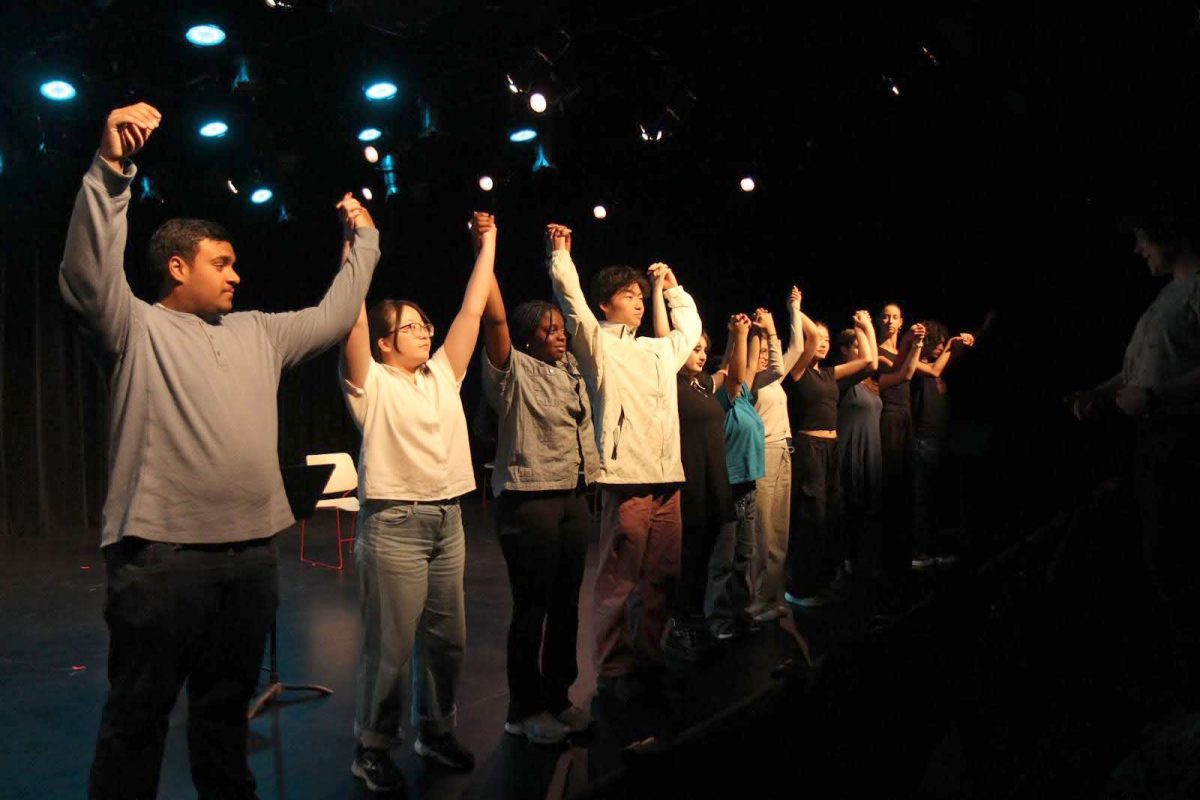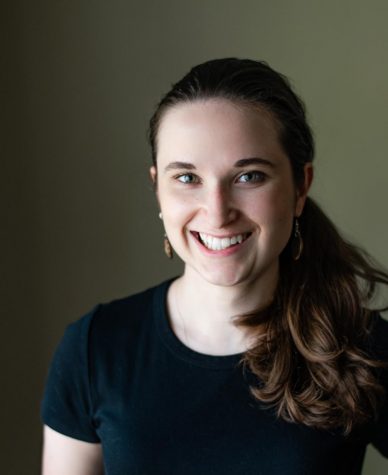As he was finishing up his PhD, music professor Mark Mazullo began to learn Beethoven’s Sonata in A-flat Major, Opus 110. Now, twenty years into his Macalester career, Dr. Mazullo is presenting all five of Beethoven’s late piano sonatas between a pair of concerts– the culmination of what he calls “a lifetime’s worth of joy, mystery and discovery.” After playing the first three sonatas on February 3, this Sunday he will perform the Sonata in B-flat Major, Opus 106 and the Sonata in C Minor, Opus 111– the latter of which is almost an hour long.
“It was five years ago that I decided to start learning that last one, Opus 111,” Mazullo reflected. “To me, it’s one of the great works of art for the liberal arts college because it is so tied to philosophy and science and has all these connections as a piece of music to other ways of knowing the world. It’s a really cool piece for everyone to experience because it has all these ways in: it’s not just a piece of music, it’s suddenly another version of something someone’s read or heard about. I’m not just playing it because I like it, or because it’s famous– I think it’s really good material for students who decide to come to a liberal arts college and want to see how things are connected to one another.”
Mazullo’s office houses not only a baby grand piano, but several floor to ceiling shelves of books. Though a music professor, he often teaches classes cross-listed in other departments, such as English. This semester, he is teaching a class called Musical Fictions. Last spring, he taught a seminar on Beethoven’s late works, including these five piano sonatas. “The more I teach that class, the more I read, and now I’ve published writing about them– so I’m always learning new things,” he said. His essay “Music in the Second Person: Listening to Opus 110” will be published in April’s edition of The Yale Review.
The sonatas themselves were written when Beethoven was almost completely deaf; at around the same time, he wrote five string quartets to work as companion pieces to these. Opus 106 is often called the “Hammerklavier,” which translates to “hammer-keyboard” in German. Opus 111, meanwhile, has been called the “invention of jazz,” according to Mazullo– who also likes to say that, in the same piece, Beethoven invented space travel. These five famous pieces were first written in the early 1800s, but are still practiced by dedicated professional pianists today.
Because of their length, Mazullo decided to split the five sonatas into two separate concerts. February 3’s recital consisted of Sonata in E Major, Opus 109; Sonata in A Major, Opus 101; and Sonata in A-Flat Major, Opus 110. “Opus 109 has the most beautiful opening– so I chose to lead with it to bring people in, but also to help me relax on stage,” he explained. “Opus 110 has a big ending, so that went last. Opus 101 in A Major, though, that’s probably my favorite. I think it’s about parents and children. I have three kids, and I just love the energy of that piece. It’s funny, it’s tender, it’s really great.”
The remaining two sonatas were saved for this Sunday’s upcoming performance. Though the five-piece set is usually performed in chronological order, Mazullo rewrote the program order for himself. “It really came down to me wanting the two that will be performed this Sunday to be together,” he said. “They’re not often paired– they’re both super intellectual, dramatic and majestic, big and important. You would never do both of them on a normal program: you would do one of them, and the rest of the music would be light and pleasant, you know, for contrast. So I decided that because you never hear them together and they’re so similar that it would be cool to pair them.”
In the program for the second concert, Mazullo writes that “in such a concentrated setting [as a ninety-minute concert], it is possible to notice more of the features that make this music so remarkable.” So, whether you’re a piano aficionado, a music enthusiast, or just looking for a break from Sunday homework, head to Mairs Concert Hall on Sunday at 3:00 pm to experience this “absurd” and wonderful pairing of sonatas. Admission is free to anyone with open ears.








Carol Slater • Sep 10, 2019 at 11:20 pm
As a web-site owner I believe the material here is reallywonderful. I appreciate it for your time. You should keep it up forever! Good Luck.
Austin Powell • Sep 7, 2019 at 7:11 am
You have made some really good points there. I looked on the web for more info about the issue and found most people will go along with your views on this website.
quarkxpress 2017 serial number • Aug 16, 2019 at 11:21 am
I dugg some of you post as I thought they were very beneficial invaluable
feebhax.com • Aug 15, 2019 at 10:03 am
Very interesting points you have remarked, appreciate it for putting up.
how to get free money on bloxburg • Aug 14, 2019 at 9:53 am
Hello, here from google, me enjoyng this, will come back again.
pz squire • Aug 13, 2019 at 2:43 pm
I love reading through and I believe this website got some genuinely utilitarian stuff on it! .
roblox power simulator codes • Aug 12, 2019 at 12:01 am
Morning, here from google, me enjoyng this, i will come back soon.
nonsense diamond download • Aug 10, 2019 at 8:58 am
This is cool!
noclip hacks for roblox • Aug 9, 2019 at 3:52 pm
Cheers, here from bing, me enjoyng this, will come back soon.
mod menu free fire • Aug 7, 2019 at 7:24 pm
Me enjoying, will read more. Thanks!
Willis Atwell • Jul 23, 2019 at 7:46 am
Mass parsite http://bit.ly/2W9CVkn